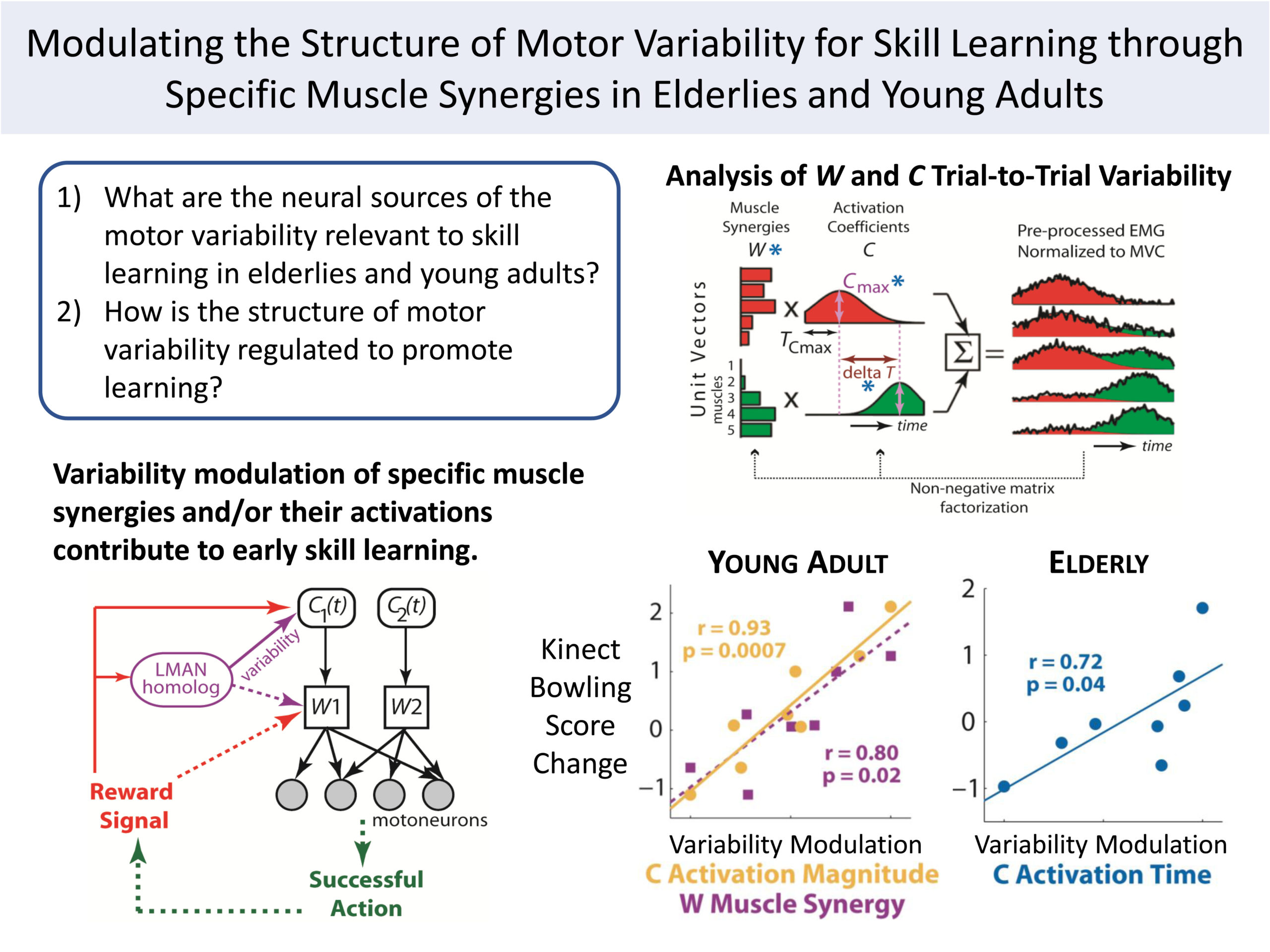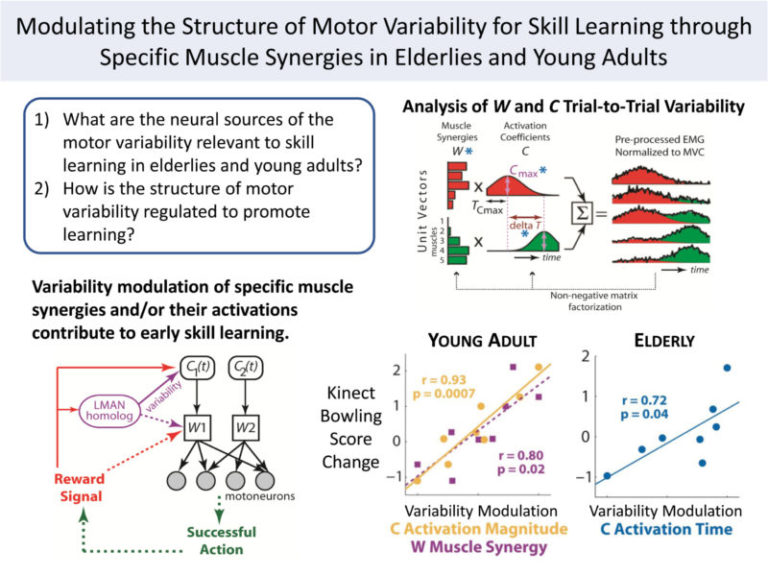
Motor variability – performance variations across task repetitions – has been assumed to be undesirable. But recent studies argue that variability facilitates early motor learning by allowing exploratory search of reward-generating motion, and that variability’s structure may be modulated by neural circuits for furthering learning. What are the neural sources of learning-relevant motor variability and its modulation in humans of different ages? Methods: Elderlies and young adults played a 3-session virtual bowling while multi-muscle electromyographic signals were collected. We quantified trial-to-trial variability of muscle synergies – neuromotor control modules – and of their activations. Results: In elderlies, bowling-score gain correlated with change of activation timing variability of specific synergies, but in young adults, with variability changes of synergy-activation magnitude, and of the synergies themselves. Conclusions: Variability modulation of specific muscle synergies and their activations contribute to early motor learning. Elderly and young individuals may rely on different aspects of motor variability to drive learning.

